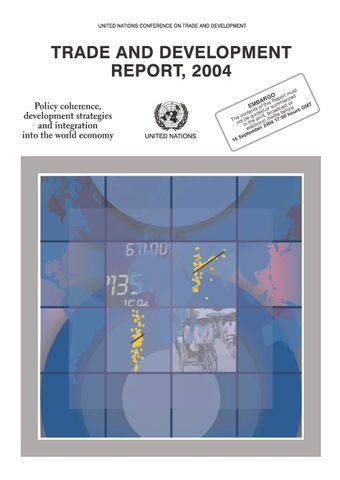Conclusions and policy challenges

- Author: United Nations Conference on Trade and Development
- Main Title: Trade and Development Report 2004 , pp 147-149
- Publication Date: October 2006
- DOI: https://doi.org/10.18356/e0556e9b-en
- Language: English
Rapid integration into the world economy, followed by many developing countries as a key element of their economic reform agenda since the mid-1980s, has not had the expected developmental effects. Their increased exposure to international market forces and competition has not enabled these countries to establish the kind of virtuous interaction between international finance, domestic capital formation and export activities that underpinned the successful catching up of Western Europe after the Second World War and of the NIEs during the 1980s and early 1990s. In this context, a fundamental question is how to reinforce coherence between national development strategies and global processes and disciplines, as well as policy coherence among and within the various aspects/sectors of the global economy that impact on development prospects of developing countries. Of particular importance is the interface between the international trading system and the international monetary and financial system.
-
From This Site
/content/books/9789211556018s006-c004dcterms_title,dcterms_subject,pub_keyword-contentType:Journal -contentType:Contributor -contentType:Concept -contentType:Institution105


